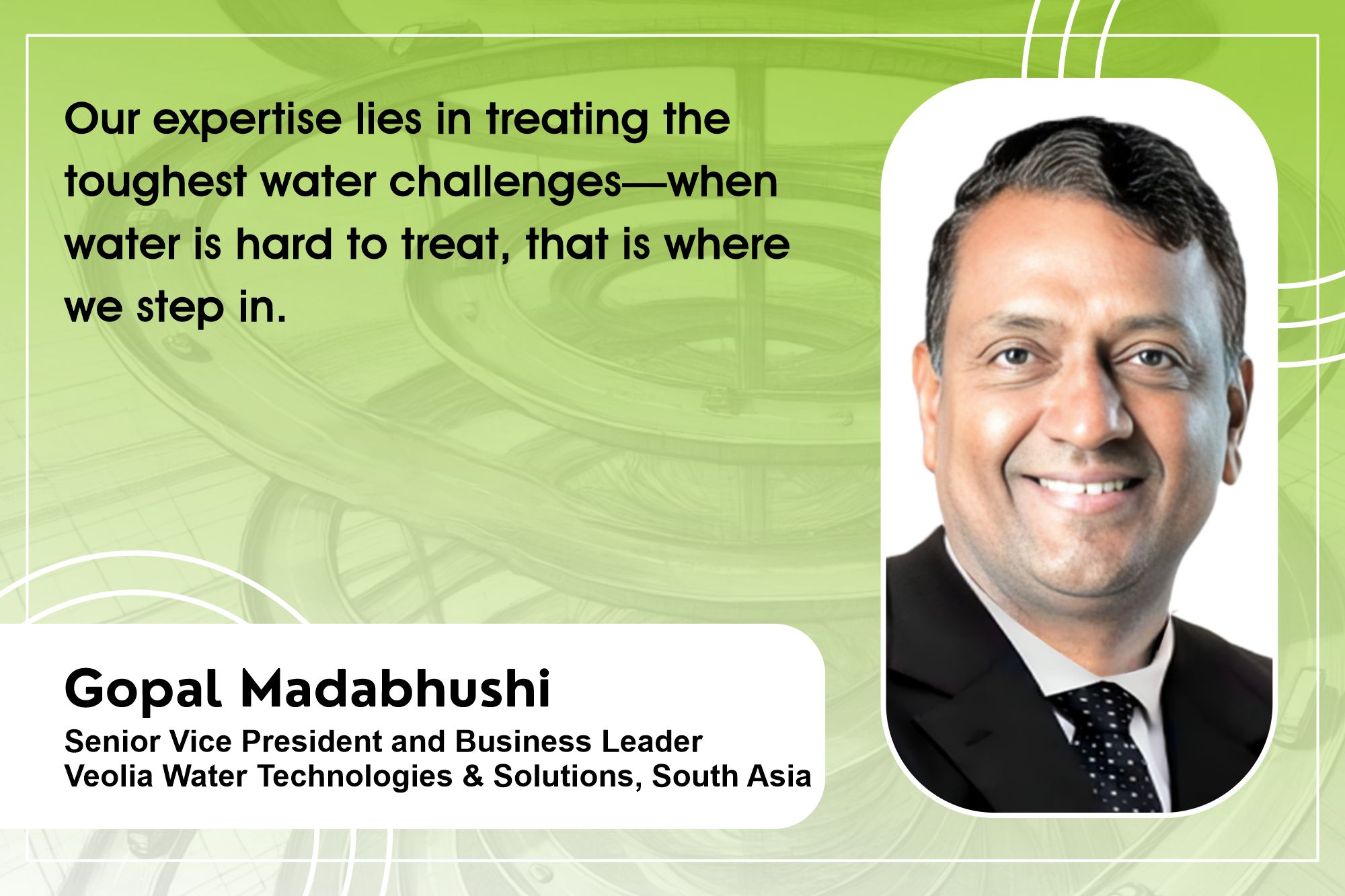Vedanta Aluminium, working toward a sustainable water footprint
By Edit Team | July 25, 2022 4:35 pm SHARE

The deployment of High-Concentration Slurry Disposal (HCSD) systems in tailings management enables us to ensure maximum water recycling through feedback loops.
Globally, India is one of the most water-stressed countries, with about 600 million Indians facing high to extreme water stress, as per a NITI Aayog report on Composite Water Resources Management in 2018-19. The report also mentions that by the end of this decade, water demand is projected to be double the available supply, implying severe water scarcity for hundreds of millions of people and an eventual loss of around 6 per cent of India’s GDP. It is without a doubt that freshwater is a critical resource that demands urgent conservation efforts given increasing demand, inefficient use, pollution and the impacts of climate change.
According to the United Nations World Water Development Report 2022, global freshwater withdrawal has increased 546 per cent over the last century, from approximately 600 km3/year in 1900 to 3,880 km3/year in 2017. The report also states that this figure is expected to grow at 1 per cent per annum over the next 30 years, driven by increasing demand in the industry and energy sectors. Amongst all continents, Asia has the highest share of freshwater withdrawal globally, at 64.5 per cent, and amongst the lowest per capita freshwater renewal rates. The rate of renewal defines the theoretical upper limit of sustainable water withdrawal.
Setting up a robust water management framework
At Vedanta Aluminium, India’s largest producer of aluminium, we are setting a strong precedent in effective water management to ensure a sustainable water footprint. The availability of clean and sufficient water is a prerequisite for ensuring unhindered operations, meeting the needs of the nearby communities and maintaining the ecological balance of the surrounding ecosystem. And therefore, Vedanta Aluminium is working towards the Vedanta Group’s vision of net water-positive operations by 2030.
Water requirements are ingrained in Vedanta Aluminium’s business decision-making process. Our water sustainability efforts are guided by a robust water management policy, which draws from global best practices and is aligned to the 6th UN Sustainable Development Goal of “Clean Water and Sanitation.” Our Water Management Standard commands structured tracking and monitoring of local water availability, along with an estimation of future changes, which we monitor at both national and local levels.
Each of our business units in Odisha and Chhattisgarh, which includes two large aluminium smelters and one alumina refinery, has undertaken a water-screening assessment to map sensitive aquatic habitats and water availability and dependence on shared water sources. These assessments are used to evaluate the degree of potential environmental and social risks related to water. Consequently, Vedanta Aluminium has implemented customised water management plans for each of its locations, which are deployed through a 4-pronged strategy. These include:
- Ensuring minimum specific water consumption through high operational efficiencies
- Incorporating technologies for water conservation, recycling and treatment to maximise water reutilisation, • Increase the quantum of rainwater harvested annually
- Ensuring zero-liquid discharge from operations.
- Alongside this, we have deployed solutions for online monitoring of water parameters and frequently undertake water leak audits to ensure watertight operations. With this, we strive to ensure no negative impact on the environment on account of industrial water usage.
Creating a sustainable water footprint
State-of-the-art Effluent Treatment Plants (ETP), augmented with Ultra Filtration (UF) and Reverse Osmosis (RO), help Vedanta Aluminium optimise freshwater intake through recycling and reuse of industrial wastewater. The deployment of High-Concentration Slurry Disposal (HCSD) systems in tailings management enable us to ensure maximum water recycling through feedback loops.
The cooling tower systems at our power plants have one of the best Cycles of Concentration (COC) globally—the higher the COC, the lower the freshwater intake, thus resulting in freshwater conservation. We even recycle water at micro-operational levels, such as reusing sprinkled water at coal handling plants through coal wastewater systems. As a result of these endeavours, in FY22, Vedanta Aluminium recycled 15 billion litres of water for in-house consumption
We have also constructed large storage/recirculating water reservoirs across our business units to collect effluent as well as accommodate points of unexpected inflows into the process cycle, particularly during monsoons. This ensures that nil or limited water inflow, only for make-up, is allowed to enter into the process.
Furthermore, we have created rainwater harvesting infrastructure and on-site water reservoirs for sourcing water during contingency scenarios. With the impacts of climate change increasingly visible in unprecedented and extreme weather events, we have also conducted flood studies across Vedanta Aluminium’s operations and developed control rooms and emergency response plans to counter such events.
Going beyond business
With the belief that access to technologies and best practices should not be limited to the company alone, Vedanta Aluminium is also working with local communities and farmers in Odisha and Chhattisgarh to augment their water management techniques to ensure maximum agricultural yield with less water requirement.
Working in the realm of sustainable livelihoods and climate impact mitigation, we are helping local farming communities adopt drip irrigation, treadle pumps, solar-powered water pumps, rainwater harvesting structures like percolation tanks, etc. to boost irrigation potential and reduce dependency on monsoons for cropping. We are also providing them with better resources like seeds requiring less water and climate-resilient crops, as well as advice from agricultural experts, to improve their knowledge of advanced farming methodologies.
This is further augmented by the annual summer cleaning and deepening of local water bodies like ponds and lakes that we undertake, helping them rejuvenate during the monsoons. This helps local communities get access to water post-monsoons for agriculture and livestock, besides maintaining ecological balance.
Water, as a resource, is tightly interconnected with land, climate, and ecosystems, as well as society, culture, and the economy. And therefore, at Vedanta Aluminium, our approach to water management is linked to the broader agenda of Environment, Social and Governance, or ESG, as we look inward (at our operations) and outward (at the communities and ecology) in our pursuit of a sustainable water footprint. As the effects of climate change worsen, it is more important than ever to align growth incentives with environmental imperatives in order to ensure sustainable development that has a long-term positive impact on the Earth and everything and everyone who lives on it.
Expertise shared by: Mitesh Pandya, Chief Sustainability Officer, Vedanta Aluminium
Cookie Consent
We use cookies to personalize your experience. By continuing to visit this website you agree to our Terms & Conditions, Privacy Policy and Cookie Policy.





















